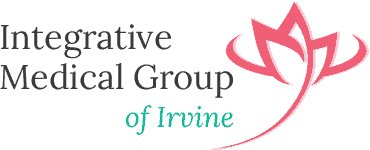Integrative Medicine is what all medicine should be. It treats each person as a complex individual composed of interrelated systems, not as a collection of discrete organs.
Diseases and disorders usually involve multiple organ systems and may have symptoms that would traditionally fall under a wide array of medical specialties. In Integrative Medicine, all of these symptoms get treated by the same medical team under a coordinated treatment plan.
An enormous benefit of being treated by an integrative doctor is that we consider a much broader range of treatment options.
There are definitely times when surgery, pharmaceuticals, and other medical interventions are the best course of action. I am a classically trained medical doctor, and I use these tools when they are appropriate.
But my toolbox is much bigger than that. I also prescribe diet, lifestyle changes, acupuncture, supplements, exercise, laser treatments, and massage.
When done properly in ways backed by rigorous scientific studies, these are powerful interventions that can change the course of a disease and a person’s life.
A foundational theory of Integrative Medicine is that, because everything in the body is interrelated, we cannot just tinker with one part of the body.
We cannot stop ovulation with birth control pills or stop stomach acid production with proton pump inhibitors without changing anything else. When you change one bodily system, you are inevitably affecting many other systems and organs. No treatment does just one thing. This is why pharmaceuticals have so many side effects.
On the positive side, when you fix one thing, you’ll often find that you unintentionally fix a lot of other problems. Your body is amazingly complex and we are only beginning to understand how it works. What we do know is that healing cascades into healing.
This is what an integrative doctor specializes in. This is why I became an Integrative Gynecologist.
And this is what I bring to you as my patient.



